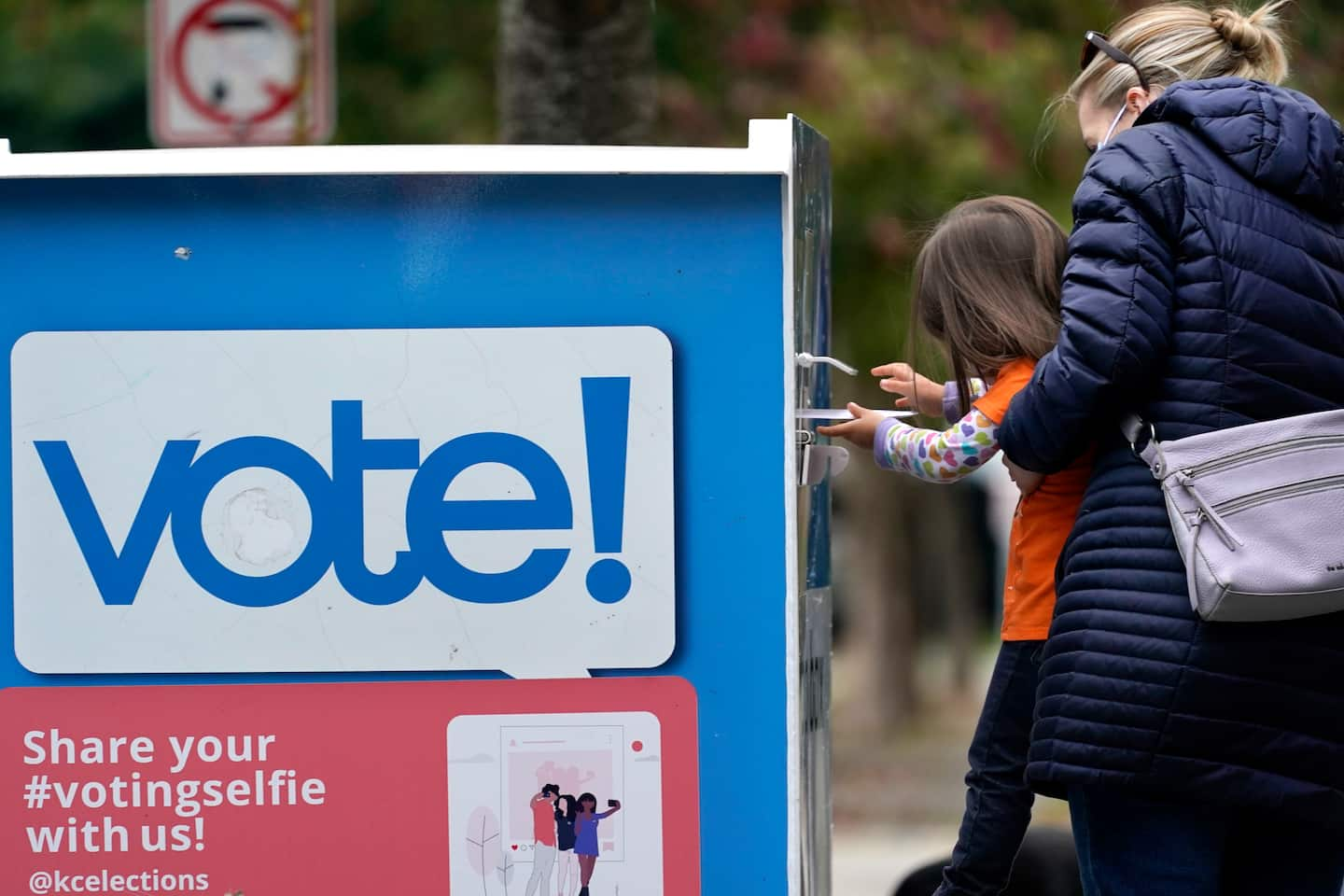The blurry line between combating ‘fraud’ and just making voting harder

On Sunday, she hosted Gov. Greg Abbott (R-Tex.) for a discussion of the surge in migrants arriving at his state’s southern border. Toward the end of the interview, Bartiromo also asked Abbott to weigh in on federal legislation aimed at protecting voting access.
Abbott claimed that Democrats were “trying to institutionalize voter fraud” with House Bill 1.
“Let me tell you an amazing story,” he said, “because it was Barack Obama himself who knew about the dangers of ballot harvesting in the state of Texas, because, under his administration, he sent his U.S. attorney for the Southern District of Texas, as well as FBI to South Texas, to arrest and to prosecute people who were involved in ballot harvesting that were using cocaine to buy votes through the ballot harvesting process in the state of Texas.”
Bartiromo was very impressed.
“This is absolutely extraordinary, governor,” she said. “Thanks very much for sharing this very important information.”
Abbott’s story was not only extraordinary, it’s not even clear what his point was meant to be.
There’s been an effort for the past year or so, driven at the outset by Trump, to simply try to make vague allegations of wrongdoing that are somehow adjacent to voting as a way of creating a fog of questions surrounding alleged fraud. Trump and his allies spent months in 2020 pointing to things such as mail-truck fires as evidence that mail-in voting was rife with problems, despite the abundance of evidence then and now that voter fraud is vanishingly rare.
Abbott’s story is a good example of that. What he says is true: There was a case in which people were implicated in attempted fraud in Texas. But, first, the scale was incredibly modest, focused on a county commissioner race. Second, several people were arrested because what they were doing was already illegal. I mean, they were allegedly trading illegal drugs for votes and got busted! The House bill isn’t going to suddenly legalize cocaine and make all of this hunky-dory. Abbott’s describing criminality that occupies several tiers simply because he wants to argue that fraud is a problem — ballot harvesting was “a way to commit voter fraud,” he explained after his story — and to cast things in as nefarious a context as he can.
This, of course, is the point. The point is to make the House bill seem as bad as possible, regardless of the goofiness of the argument. Just as the point with the fraud claims made by Trump last year was to make the process seem as suspect as possible. That, in turn, has been the fuel for more than 250 state-level efforts to reform voting processes.
The tell in many of those efforts is that the changes being offered wouldn’t actually affect the purported fraud. In Georgia, for example, the proposed changes include new limits on the days on which early voting could occur, an effort almost unquestionably centered on curtailing Sunday voting traditions favored by Black voters. Does trimming a day of early voting somehow reduce the number of alleged fraudulent ballots? Does the Georgia cabal seeking to commit widespread fraud all agree to do it only on the last Sunday before the election?
In Iowa, Gov. Kim Reynolds (R) pointed to the number of Iowans who had “some concerns about what happened in this last election” necessitated that the state prove “that there’s integrity in the election process.” That the proposed legislative changes mostly focused on scaling back hours for voting, though, undermines such assurances — to the extent that one Republican lawmaker assured his colleagues that “this bill has nothing to do with fraud.”
The malleability of claims and concerns about fraud is useful, serving as a rationale broadly for whatever changes strike lawmakers as beneficial. That malleability derives largely from the fact that the claims are unbound to evidence. Were there robust evidence of fraud committed using ballot drop boxes, for example (which there isn’t), the case for eliminating drop boxes might be made stronger — but sweeping reforms aimed generally at overhauling election systems would become less able to be rationalized. The vagueness is itself useful.
By now, the effort to gin up generic “maybe voting is risky” concerns has worked, at least on the political right. In the way that the war on terrorism led to a rash of policy changes largely unrelated to terrorism or which seemed unlikely to actually help address the problem, the war on voter fraud has leveraged nebulous concerns to do what was desired in the first place.
Extending that analogy, Abbott’s claim about the dangers of trading drugs for votes is like arguing that Congress shouldn’t expand the identification one can use to board an airplane because in 2007 a guy trying to get on a commuter flight out of El Paso gave the pilot $100,000 in counterfeit bills. Yes, such behavior should be prosecuted, since it’s illegal. No, it doesn’t really have anything to do with anything.
But when the standard for demanding policy changes is “people are concerned about the concerns we’ve fomented,” this is where you land.






